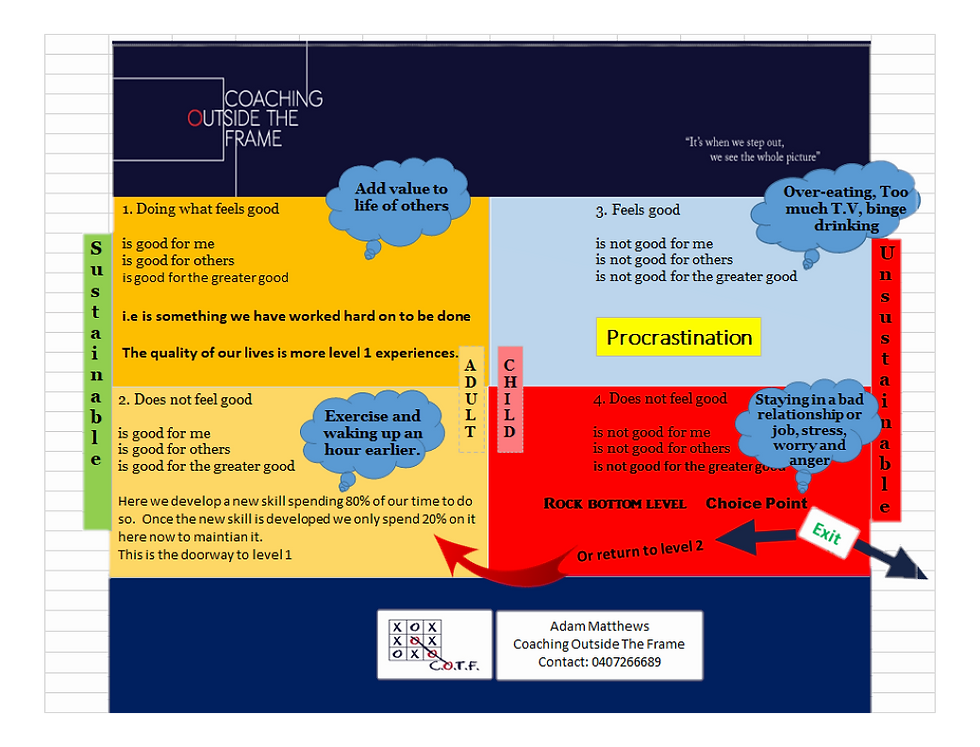The Four Levels Of Thinking
- Adam Matthews COTF
- Jun 15, 2018
- 2 min read
The four levels of thinking
The 4 levels of thinking!
1. Doing what feels good
2. Does not feel good
3. Feels Good
4. Does not feel good
You should be aiming to be operating between level 1 and level 2.
Level 1 and level 2 are sustainable levels of thinking.
Level 1:
Doing what feels good: is good for me, is good for others, is good for the greater good.
The behaviour in this level is about the actions you take that lead to both short and long-term pleasure.
Self-sacrifice and the act of giving love to another person fall into a level 1 thinking behaviour.
Level 2:
This is the behaviour of short-term pain leading to long-term pleasure. Here we develop a new skill by working hard and spending 80% of our time in level 2 to do so.
Once the skill is developed we only need to spend 20% of our time here in level 1 to maintain it.
Does not feel good: is good for me, is good for others, is good for the greater good.
Level 3:
This is the behaviour of short-term pleasure resulting in long-term pain. This is self-sabotaging behaviour that:
Feels good: is not good for me, is not good for others, is not good for the greater good.
Overeating, binge drinking, excessive television, and procrastination.
Level 4:
This is short and long-term pain. This is a self-sabotaging behaviour that:
Does not feel good: is not good for me, is not good for others, is not good for the greater good.
The emotions of stress, worry, and anger are all typical examples that fall into this category. Staying in a bad relationship or career are two decisions that also reflect this class of behaviour.
The right thing to do is always be making decisions that lead to level 1 and level 2 behaviours.
These are what typically leads to long-term pleasure. On the other hand, avoid the traps of level 3 behaviour. It may feel good on the surface, (short-term), long-term the consequences are not very pleasurable.
Likewise, level 4 behaviour is often unconscious emotional responses, habits, and behaviours that catch us off guard. You will recognize these experiences because they just don't feel good and eventually lead to painful consequences.
In the end, the meaning of this is to help you understand the process of how you can transform your behaviour in an optimal way to help you find more happiness and contentment in life.
Curious to know more? Contact me now to explore where you can transform your thinking for more happiness and contentment in life.
Live the life you love
Love the life you live.






















Comentários